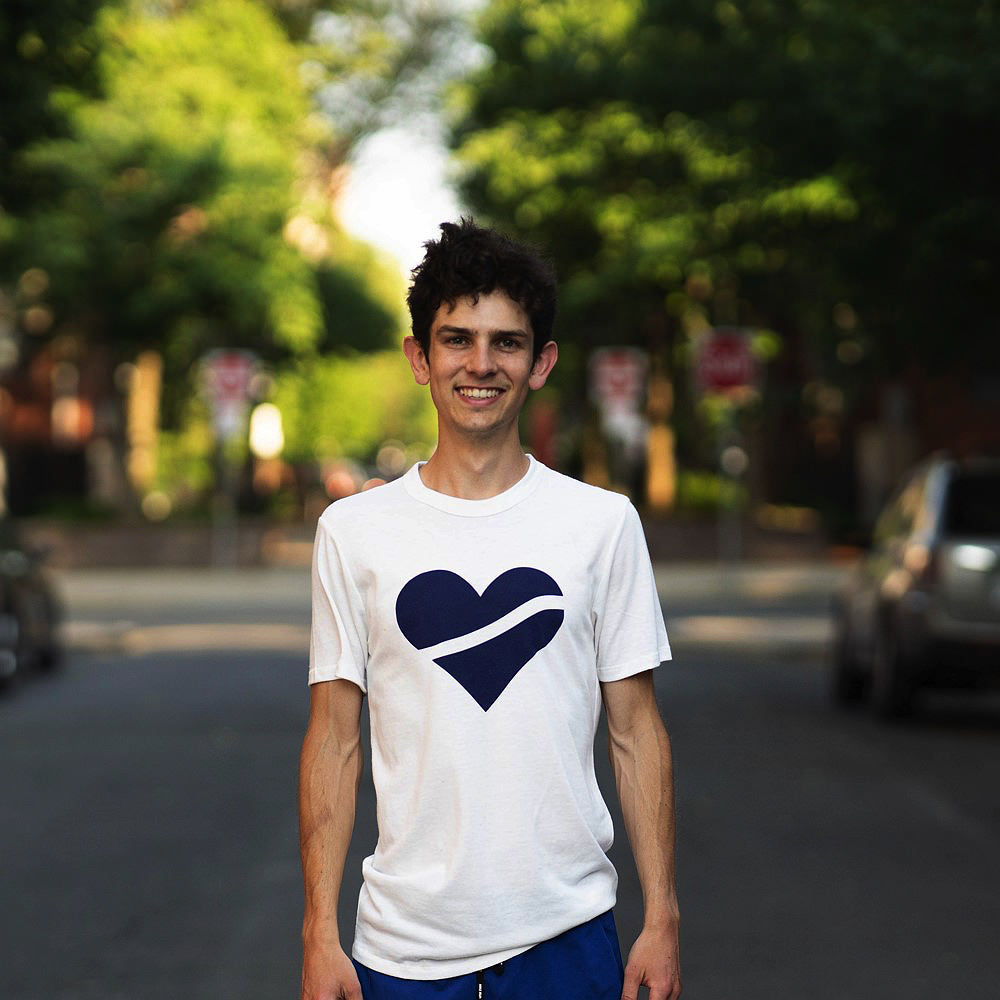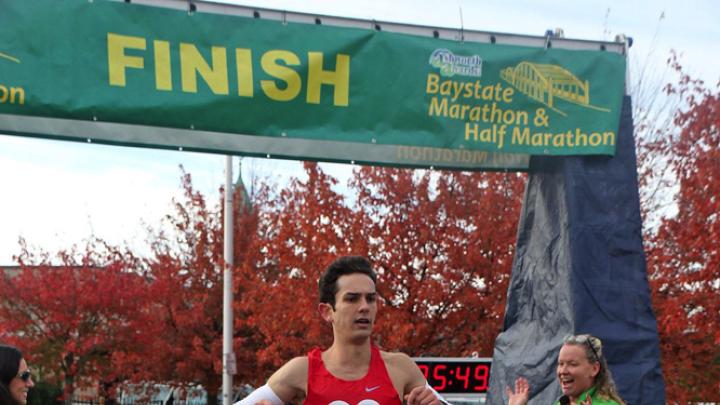The day of the 2018 Boston Marathon was blustery, rainy, and cold—conditions ideal for neither runners nor spectators. Still, despite the wind and downpour, “The race itself was inspirational,” said Stephen J. Bourguet G.S.A. ’24, a graduate student in earth and planetary sciences. “I felt like, ‘I want to do this someday.’”
Bourguet, a competitive runner in high school and college, set his sights on Boston’s 2020 race. To qualify, he ran his first marathon in Newport, Rhode Island, and wound up winning with a time of two hours and 39 minutes. It seemed that everything was going according to plan. But then COVID-19 struck, obliging Boston officials to delay the city’s iconic race—first to April 2021, and then again to this coming October. “So that’s what I’m training for right now,” he said.

Stephen Bourguet
Photograph by @fidel.is.cool on Instagram
Now a doctoral student in the lab of assistant professor of environmental science and engineering and of earth and planetary sciences Marianna K. Linz ’11, Bourguet started running back in middle school. “I was maybe okay at kicking a soccer ball, but I was really good at outrunning people,” he recalled. “So I decided to get rid of all the extra rules and the balls and sticks and whatever, and just run.” As an eighth grader, Bourguet joined the high school track team. From there, he graduated to running at Brown University, where he studied environmental engineering and geophysics.
In the spring of 2017, during his senior college year, Bourguet developed a serious stress fracture. He said the sport was taking a mental toll on him, too. “I put a lot of pressure on myself,” he recalled. After 10 years of racing, he decided to take a break.
Bourguet tried swimming, biking, and weightlifting, but they didn’t offer him the sense of community that running did. Ultimately, it was the experience of spectating at the 2018 Boston Marathon, almost exactly a year after his injury, that enticed him back to his signature sport and set him on his winning tour of the Newport course. That, and some persuasion from his girlfriend—a fellow runner—also helped with the decision, he noted.
He said running is less stressful for him at this point in his life. “All the people I’m running with, we’re all doing it on our own accord. Anybody could quit when they wanted. There isn’t this pressure of being on a college team with the expectations of competing at a certain number of meets each season,” he said.
That doesn’t mean he’s cut the competitive spirit out of his sport, however. In December 2019, Bourguet traveled to Sacramento to run in a U.S. Olympic Trials Marathon qualifier. “I ran two hours, 19 minutes, and two seconds,” he said. “It turned out that the qualifying time for the Olympic trials—which happened a few months later—was two hours, 19 minutes, and zero seconds. So I missed by two seconds.”
Though the Boston Marathon course is more difficult, Bourguet is hopeful that he can shave off those extra seconds—and maybe bit more. As he works his way up to a training regimen of 80 or 90 miles a week, he’s currently supplementing on-land running with “aqua jogging” in Mystic Lake.
“I’m just floating and pretending to run. People often go by—whether they’re swimming or kayaking or whatever—and they ask if I’m okay. They see me bobbing up and down, and I’m typically working pretty hard,” Bourguet said, laughing. “And I’m always like, ‘No, no, I’m fine, I’m just enjoying the lake the same as you.’”
Bourguet manages to fit all this training around his work in the lab, where he studies how climate change will affect temperatures and water vapor in the stratosphere. It helps that his program is flexible: “If I end up having a really long workout in the morning, I can start my research at 10 a.m. or even 11,” he said. “I kind of make my own schedule.”
Bourget said he avoids ruminating on his research while on runs. “I think there are really two groups of people: those who use running to think about problems, and those who use running to not think about problems,” he quipped. “I fall in the second group.”
“For me, running is very relaxing,” he continued—apparently, even when it involves training on the Boston Marathon’s infamous Heartbreak Hill.








